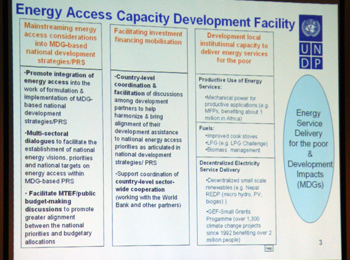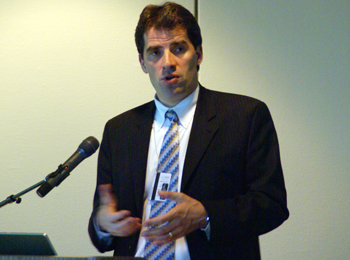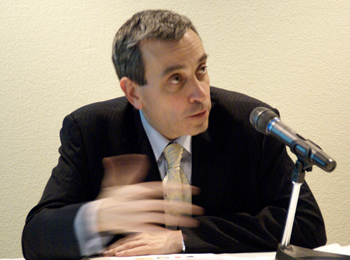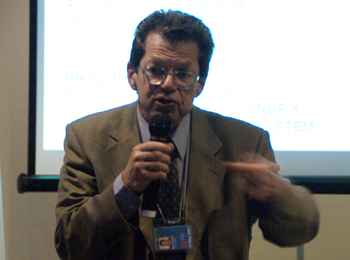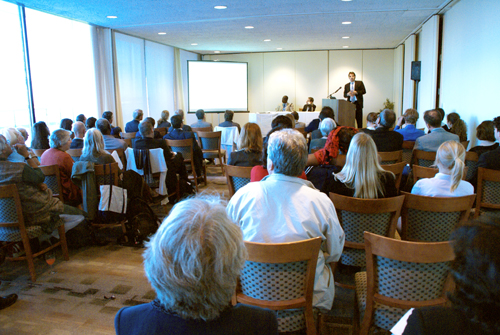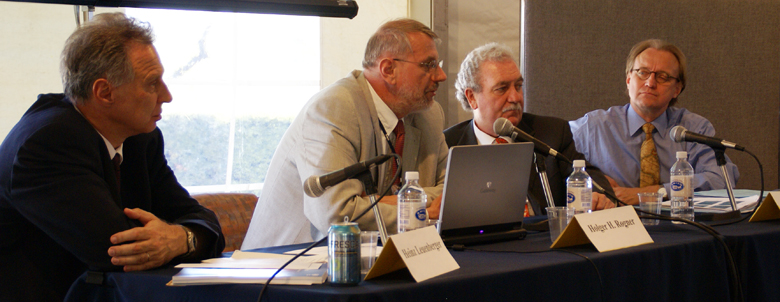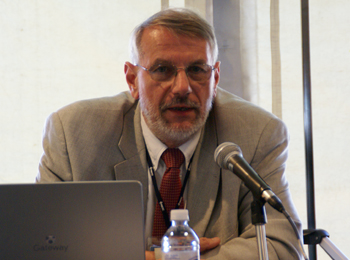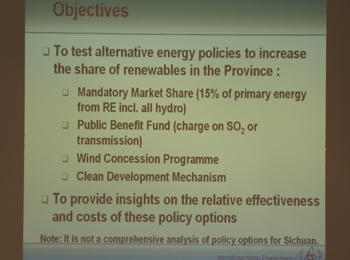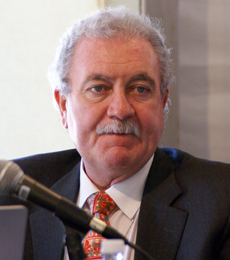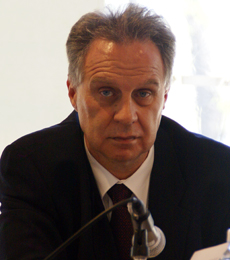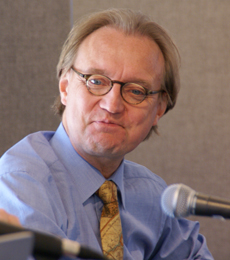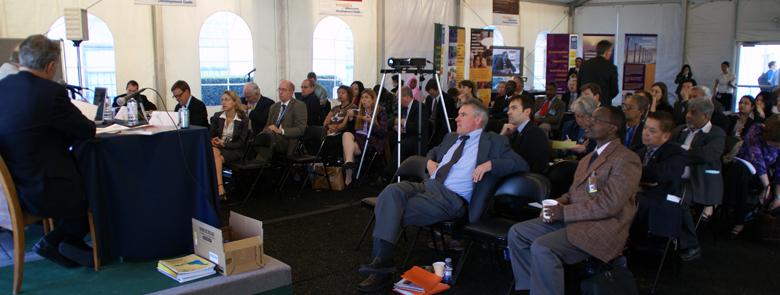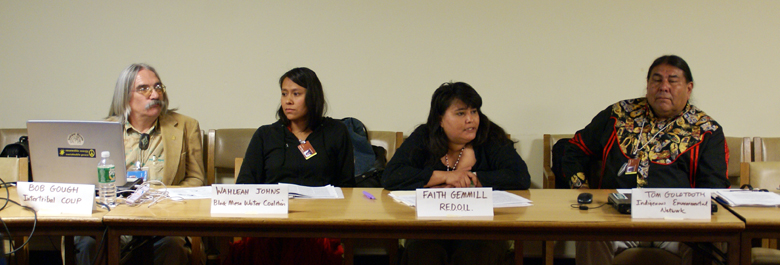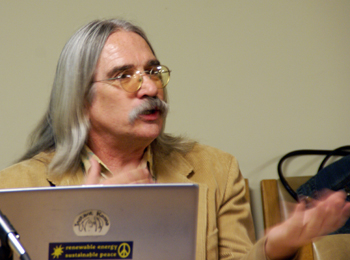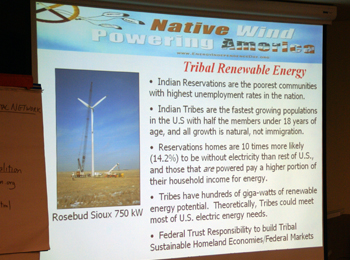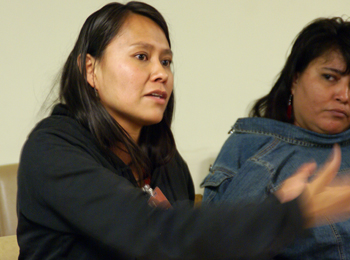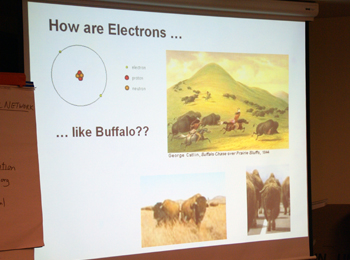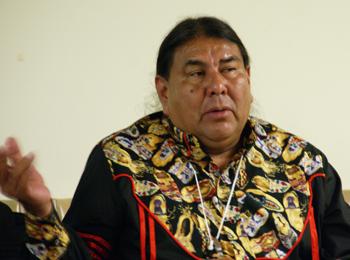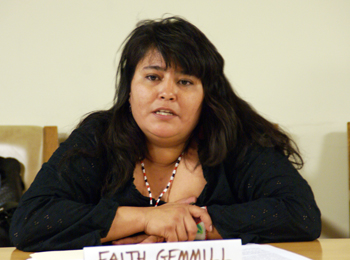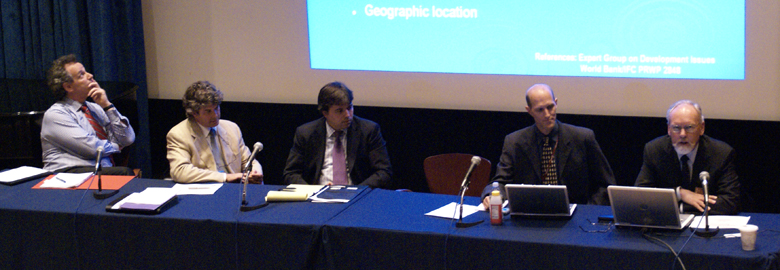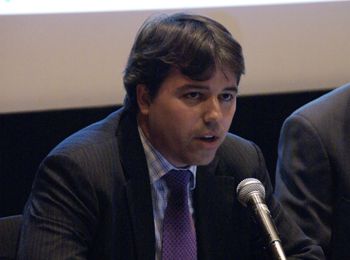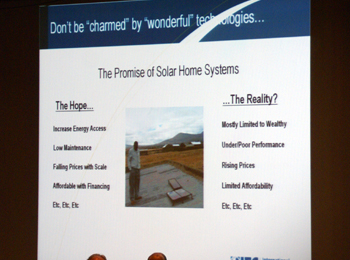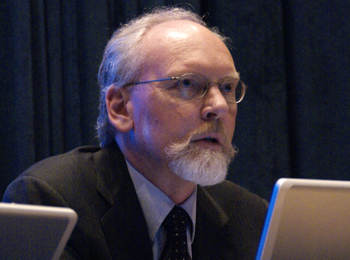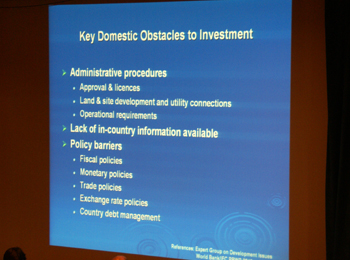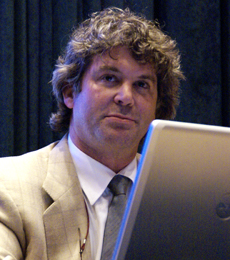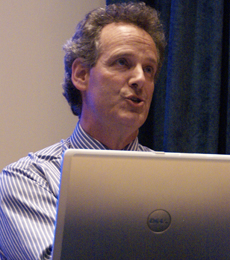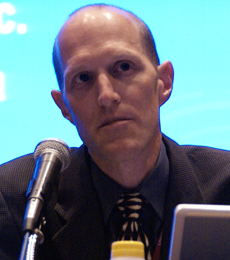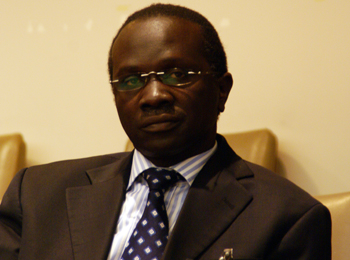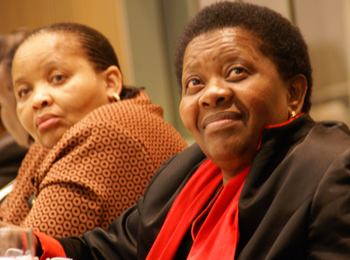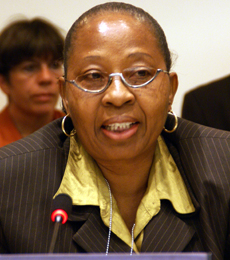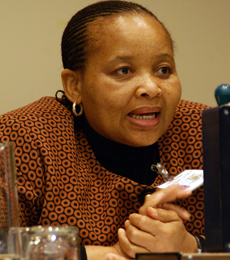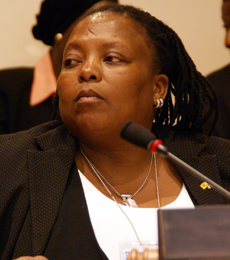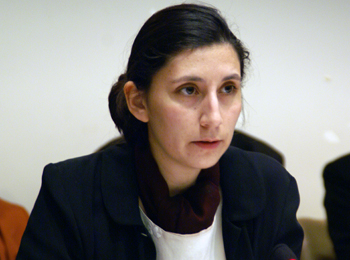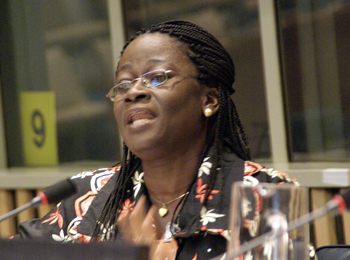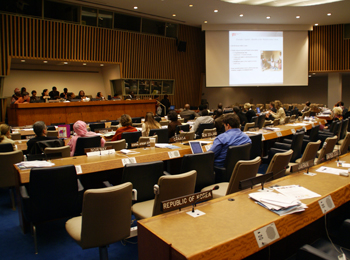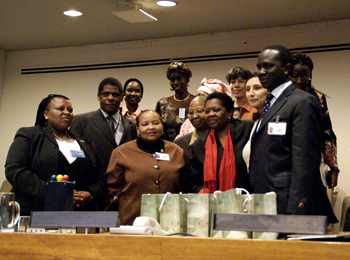 |
||
|
published by IISD, the International Institute for Sustainable Development
in cooperation with the UNDP Secretariat |
|||
|
Special Report on Selected Side Events at the Fifteenth Session of the Commission on Sustainable Development (CSD-15)
|
|||||
| 30 April - 11 May 2007 | United Nations headquarters, New York | |||||
 |
 |
|||
 |
||||
Events convened on Tuesday, 8 May 2007
|
|||||||
|
Olav Kjørven, UNDP, introduced the event and said the discussions would highlight the next steps and challenges in scaling up energy access, notably in Africa. Ambassador Laurent Stéfanini, France, discussed the French government’s perspective on capacity development for expanding access to energy services for the poor in Africa, focusing on policy, institutions and infrastructure. On policy, Stéfanini noted the need for public authority involvement and on infrastructure, he highlighted the need for diversification of energy through use of local energy resources. Mahama Kappiah, ECOWAS, said that in order to promote and coordinate regional economic development, ECOWAS is implementing the West African Gas Pipeline project and the West African Power Pool, which aims to integrate national power systems into a unified regional electricity market. He also discussed a white paper, the Regional Energy Access Policy. Kjørven spotlighted the launch of an Energy Access Capacity Development Facility, which is designed to mobilize the UN’s service delivery infrastructure and multi-disciplinary knowledge at all levels to work to deliver energy services for the poor through capacity development. He highlighted the World Bank and UNEP as partners in the Facility. Steven Gitonga, UNDP, described the GEF Small Grants Programme (SGP) focal area on climate change mitigation, which is implemented primarily through renewable energy and energy efficiency projects. He said that social capital is a large resource in Africa that can be mobilized through the SGP and scaled up through partnerships. Metsi Makhetha, UNDP Africa, said that expanding access to energy services is about giving women choices, noting that there are on-the-ground examples of expanding access to energy in Mali, Senegal, and Burkina Faso, and that these can be supported and scaled up. She said that UNDP is focusing on supporting capacity development for delivering energy services across the board. Minoru Takada, UNDP, said that there is an apparent lack of financing for access to energy services locally, nationally, and internationally, and hoped the Facility would engage partners on ways to deliver energy services to the poor. Participants discussed: private sector participation in energy access in Africa; success of training middle-aged women to be solar engineers at the Barefoot College in India; and ways to leverage political will. |
||||
|
|||
|
Mats Karlsson, World Bank and Chair of UN-Energy, outlined the history and mandate of UN-Energy, which he explained was created following WSSD, at which time there was no framework for energy within the UN system.
Gustavo Best, FAO, introduced a new UN-Energy publication sponsored by FAO, entitled “Sustainable Bioenergy: A Framework for Decision Making,” which discusses nine key bioenergy sustainability issues. He said bioenergy’s multidisciplinary nature makes it an appropriate topic for UN-Energy to consider. Hans-Holger Rogner, IAEA, discussed a UN-Energy case study assessing policy options for increasing the use of renewable energy for sustainable development in Sichuan Province, China. Heinz Leuenberger, UNIDO, outlined the mandate of UN-Energy Africa, which he said is to establish regional consultative meetings among UN agencies working in Africa. He also highlighted the launch of a book, “Energy for Sustainable Development: Policy Options for Africa.” |
|||
|
|||
|
Tom Goldtooth, Indigenous Environmental Network, said the side event would spotlight the impacts on indigenous people of CSD-15 issues such as sustainable energy, climate and industrial development, and the solutions that indigenous people are creating to address these impacts. Faith Gemmill, REDOIL, addressed the indigenous people of Alaska’s human right to continue their traditional subsistence way of life, which is interdependent with the natural environment. She said REDOIL is committed to a moratorium on all new exploration for oil, gas and coal. Wahleah Johns, Black Mesa Water Coalition, discussed the inadequate balance between corporate and indigenous rights to ground water in the Black Mesa region of Arizona, and emphasized the “Just Transition Plan” to achieve a healthy economy as well as a safe environment, by developing wind and solar energy. Robert Gough, NativeWind, described the combination of energy efficiency and renewable energy as a solution to excessive energy consumption. |
|||||
|
|||
|
Aaron Cosbey, IISD, defined clean energy investment as investment that leads to more energy generation while reducing energy’s carbon footprint. He said that the CDM is a fairly good model for increasing clean energy investment but needs scaling up to a massive level, and may be unavailable post-2012. Cosbey asked panelists how to foster more direct foreign investment in clean energy, especially in developing countries.
Howard Mann, IISD, described international barriers to investing in clean energy, such as the difficulties of applying clean technology requirements or emissions limits to existing investment treaties. He concluded that the Energy Charter Treaty allows some possibility of addressing new technology requirements and environmental issues, but existing bilateral investment treaties mostly do not. Allan Amey, Amey Consulting, examined domestic obstacles to investing in clean energy in developing countries, such as utility and site issues, lack of information, trade and fiscal policy restrictions, lack of grid access, and subsidies for fossil fuel industries. He recommended that developing countries promote foreign investment in clean energy by, inter alia, unbundling energy sector monopolies, and granting subsidies and rebates for clean energy. Fabio Nehme, International Finance Corporation, shared some lessons learned on investing in clean energy in developing countries, urging investors to let the market decide which technologies work best in each country, and to examine successful local business models. Mark Rudolph, Clean Air Renewable Energy Coalition, described his organization as a group including fossil fuel and renewable energy companies, green NGOs, capital funds, governments and consultants, with a mission to advance “green” power. He listed accomplishments including: influencing Canada’s government to introduce wind and renewable power incentives; creating public demand; and building a new industry for Canada. Participants discussed: subsidies; the influence of government research and development decisions; and the significant employment created by scaling up renewables. |
|||||
|
|||
|
Buyelwa Sonjica, Minister of Minerals and Energy, South Africa, welcomed the increased focus and platform for gender issues provided by CSD-15. She said that women are decision-makers and energy managers at the household level, and stressed the crucial need for women to be empowered to understand the socioeconomic benefits of energy efficiency.
Daudi Migereko, Minister of Energy and Minerals Development, Uganda, and Chair of the Forum of Energy Ministers in Africa, outlined Africa’s targets for doubling modern energy consumption and increasing rural and urban energy access and availability. Lulu Xingwana, Minister of Agriculture and Land Affairs, South Africa, stressed that biofuels will benefit farming communities by creating new agricultural markets, jobs and economic opportunities, for women and youth in particular. Metsi Makhetha, UNDP, said that UNDP’s work on gender and energy focuses on mainstreaming energy access considerations into MDG-based strategies, facilitating investment, and developing institutional capacity. Oscar Kalumiana, Ministry of Energy and Water Development, Zambia, identified the importance of having a critical cadre of trained professionals, and ensuring that stakeholders make effective contributions to energy policy implementation. Edouard Traore, CSD-15 Vice-Chair, Burkina Faso, said that addressing energy and gender issues was a question of fighting poverty and creating the conditions for development at the local and community levels. Nancy Gomez, Eve-olution, outlined a project targeting women entrepreneurs in developing countries in the creation of 50 energy operations, including the preparation of feasibility studies and training. Marlis Kees, GTZ, outlined the cost benefits of investing in clean cooking technologies, and stressed the need for the technologies to be convenient, modern and affordable. Yacine Diagne Gueye, ENDA-TM, called for the development of a multisectoral vision, and policy that mainstreams gender and energy into sectoral and local health strategies. Rose Mensah-Kutin, ABANTU for Development, urged African governments to demonstrate commitment to women by prioritizing easy and affordable access to energy services. |
|||
|
|||
|
||
|
Click the above button to go back to our ENB main coverage
|
||
|
|
|
|
|
||
|
